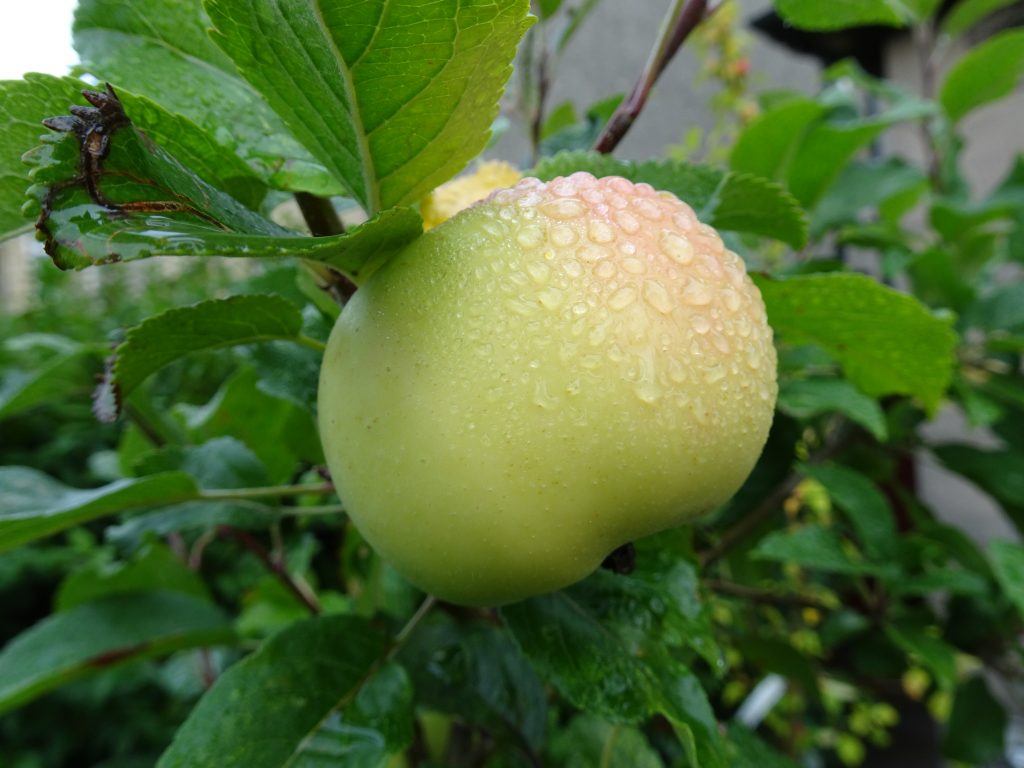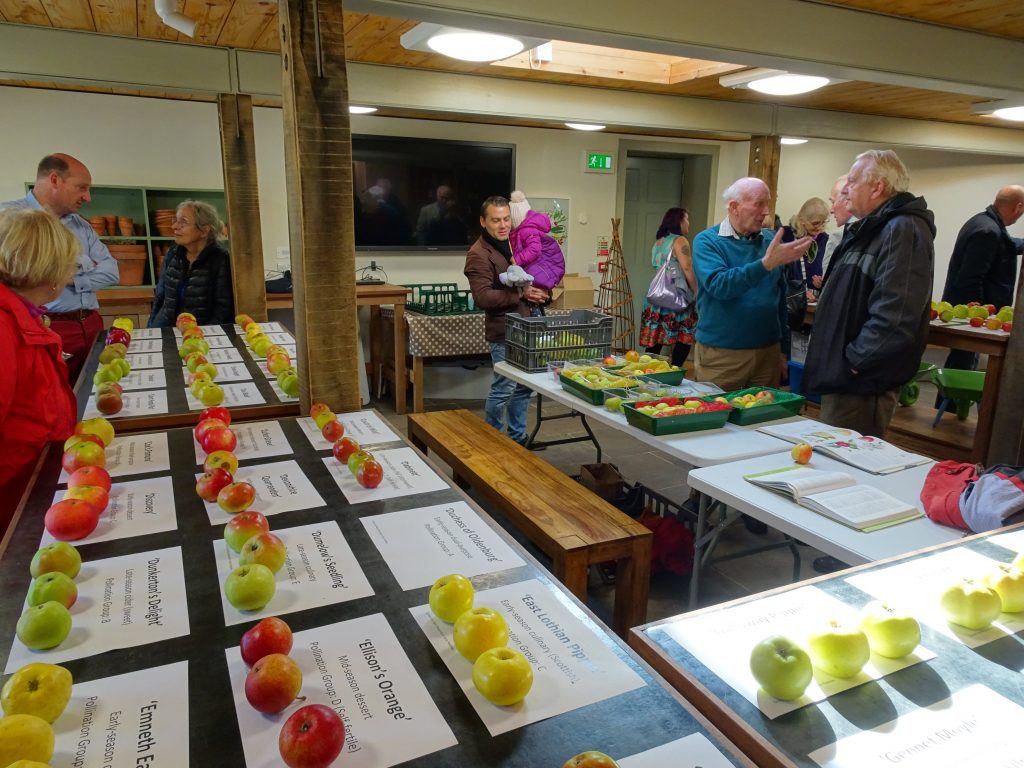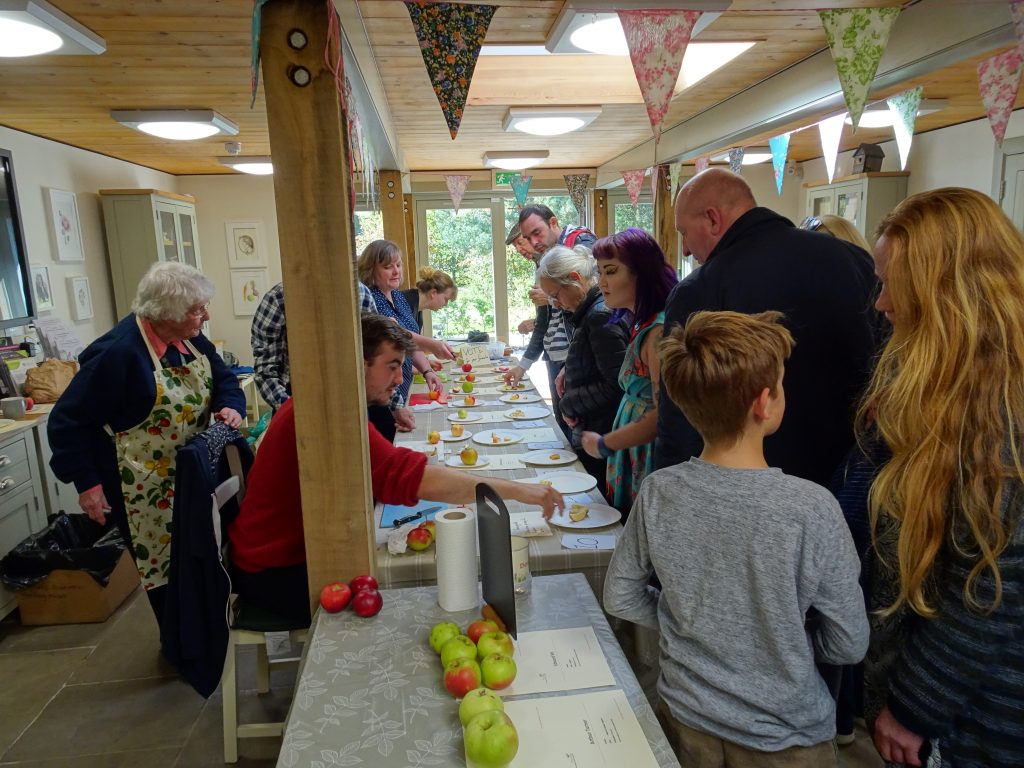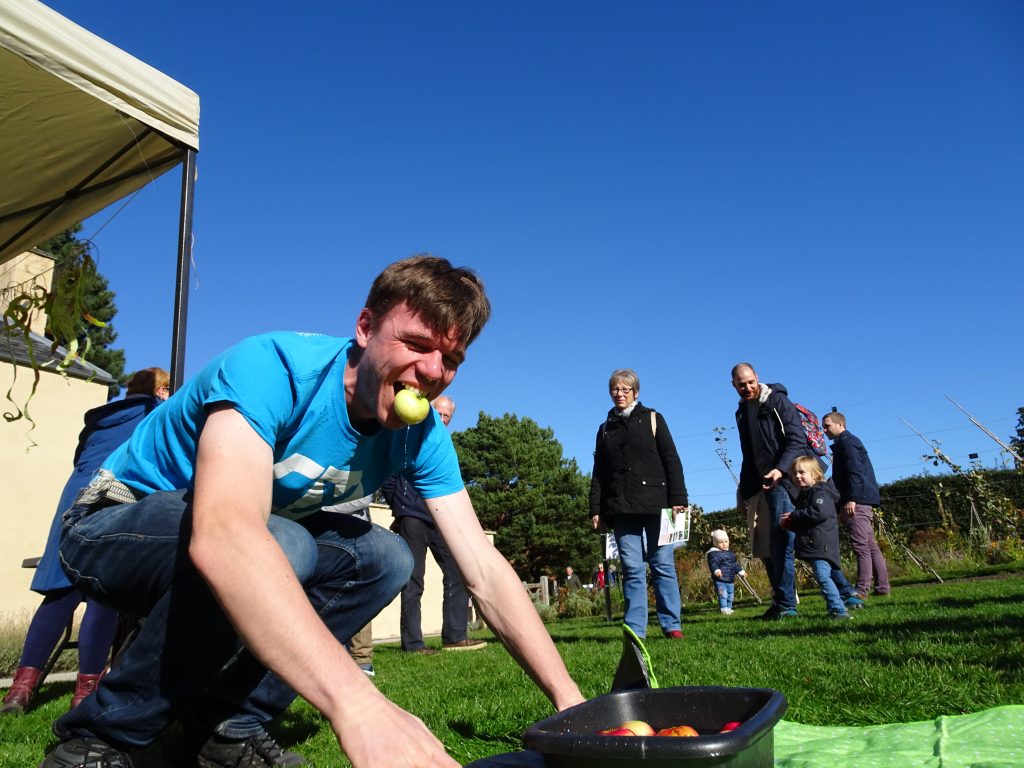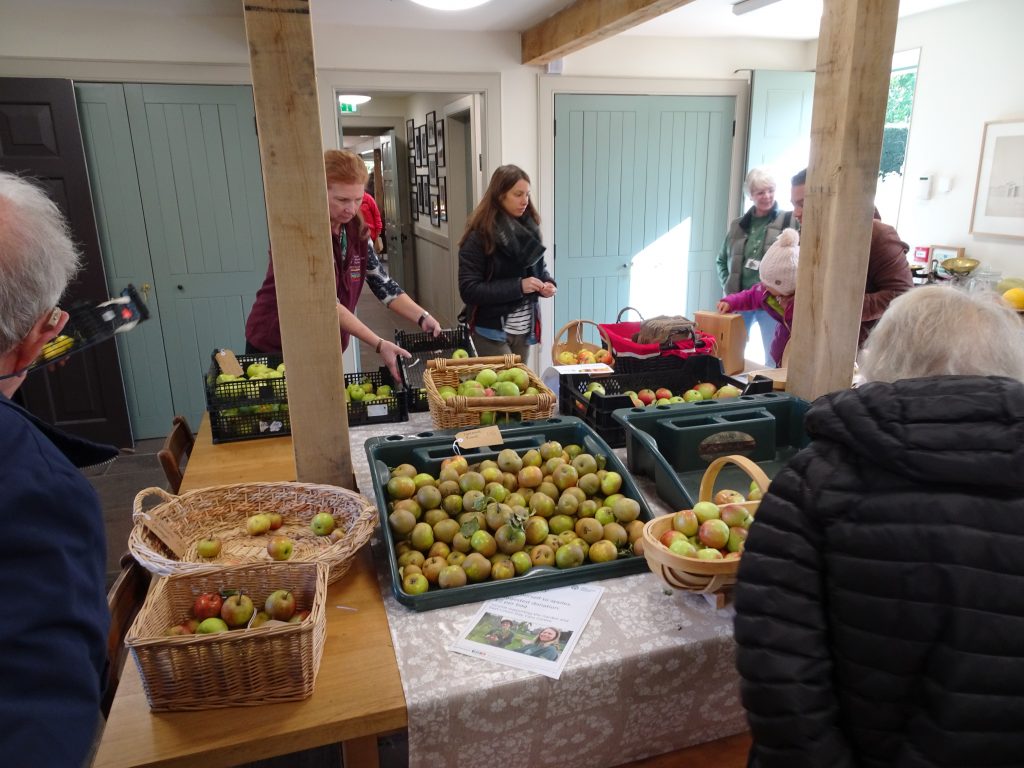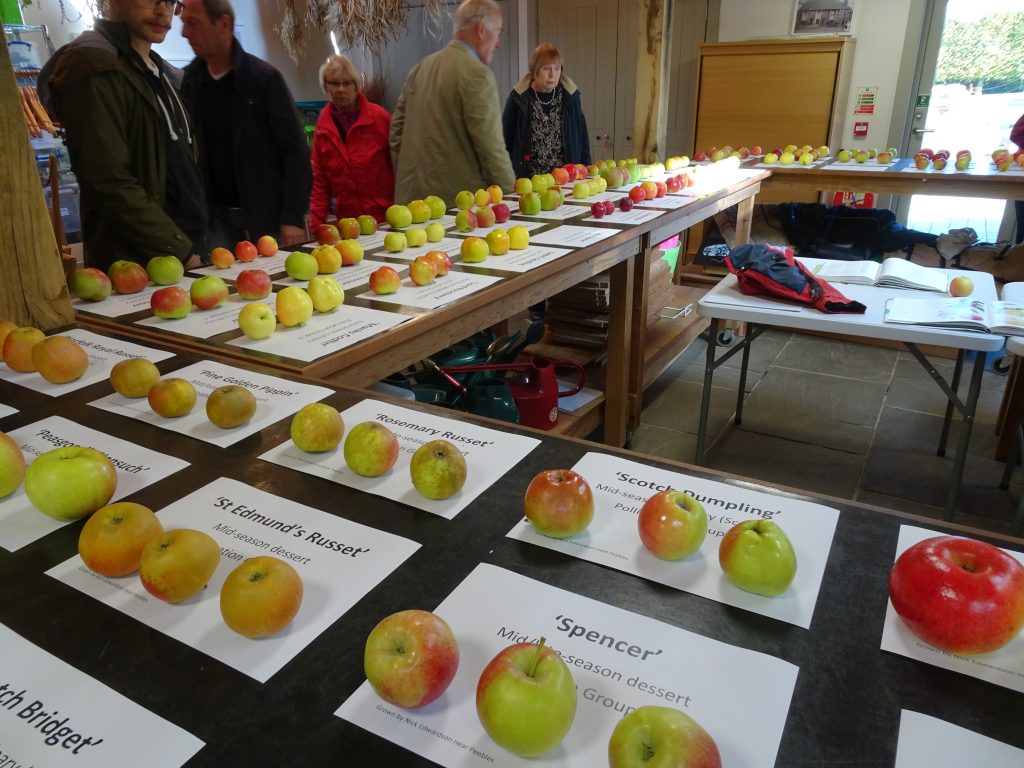The Apple Day event held in the Botanic Cottage on 6 October was the tenth Apple Day run jointly by the Botanics and the Royal Caledonian Horticultural Society. As a seasonal celebration of food, Apple Days are a great way to remind us about the importance of diversity in food for the pleasure it brings. However, there is a more serious point to diversity and that is about resilience. Relying on half a dozen apple varieties leaves us vulnerable to pests and diseases and is not necessary when you realise that there are thousands of apple varieties available.
Scotland’s National Collection of apples was on display thanks to Nick Edwardson and 84 varieties were included this year.
A team of volunteer “choppers” from The Caley kept visitors supplied with tasters of a selection of locally grown apples. Votes were cast to assess the most popular apples. From the 485 votes cast the joint favourite apples were ‘James Grieve’ and ‘Discovery’.
The horticulturist James Grieve (1841 – 1924) was manager of Dickson’s Nursery in Edinburgh and developed a reputation as a breeder of new plant varieties, including apples. The apple variety ‘James Grieve’, first recorded in 1893, is a popular cultivar that can lay claim to being Edinburgh’s apple.
For the second year running The Orchard Project joined us and provided apple-themed activities on the lawn in front of the Cottage. Luckily the sun was shining and great fun was had apple dooking and seeing who could create the longest peel. The Orchard Project was assisted by volunteers from Friends of Saughton Park, Bridgend Farmhouse and Redhall Walled Garden.
Thanks to some perfect weather conditions 2018 gave us a bumper crop on the apple trees outside the Cottage. We estimate that around 1000 apples were taken away by visitors and £260 was raised in donations.
Apple Day is the perfect opportunity to try to identify unknown apples. Plenty of gardens have a tree of unknown identity. Bringing a few apples along enables comparison with the National Collection and experts are available to advise on what a mystery apples might be.

